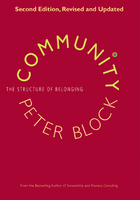Pursuing Your Aspirations
There YOU are, surrounded by the WANTS, the REALITY, and the PEOPLE in your organization. You are considering what you WANT the organization to do, what you WANT others to do, what you WANT to do together. Before moving others, you must move yourself. You must have clarity about what you want, your ability to put your wants forth, and your willingness to do so. We will step into the shaded portions of the GTD model as we consider:
How can you discover and express your WANTS?
What do you need to learn how to do to bring WANTS to life for yourself?
What can you do with WANTS to support change in your organization?
The way to success in your work is to pursue and affirm what you want out of your life. This requires much more clarity about your life and wants than your organization usually asks of you. The organization's game is usually confined to what it wants and how you might help it get there. That is well and good, but it is not necessarily the way to build your investment or power. Define yourself, define your wants, and make the organization game a subset of your life game.
Know What You Want
If this were as obvious as it appears, we would acknowledge it more often. Too often we run off it the direction of what we feel we want before putting more thought behind it. Knowing what you want will serve you as you attempt to get things done: It will help you be clear with yourself, focusing your time and energy. It will help you be clear with others; you will be more compelling, more powerful with them. Others will know what they are signing up for; you will have clearer agreements with them and be more likely to be able to count on them.
Wants come in many shapes and sizes. Here are some you may have seen in your life:
“I want to the organization to support this project.”
“I want to improve our board meetings.”
“I want this agency to better serve its clients.”
“I want people to feel good about living in our town.”
“I want us to have a party after our meeting on Friday!”
“I want to feel better about working on this team.”
“I want to have a real life outside of work.”
The time frames on fulfilling these wants vary from “can do now” to decades of work. The task anticipated varies from minimal to monumental. Your clarity about what you want, and are willing to take on, shapes what happens after you initiate action.
Know Why You Want What You Want
The “What Is Important?” exercise on page 14 explored the deeper meaning behind the work you do. If you didn't complete it then, do so now. Each of us shows up at work for very complicated reasons. We know what we do, when to do it and where; we usually know how. The big question of why—asked in that earlier exercise—often slips by unasked. Many of us do our work without thinking about the deeper whys. That is fine, unless you are unhappy about your work, or how you are treated, or the results your work group is getting, and you want some changes. Then the whys become very important, and they are linked to what you want.
As the GTD model shows, change takes place when PEOPLE take responsibility for the current REALITY and help move it toward their WANTS. Since you are going to be helpful in this, you need to be able to discover your wants and express them well. When you can do this with yourself, you are ready to begin to do it with others.
Your success at work is anchored in your personal vision and values. With everyone else's problems and priorities constantly pounding you, you will be successful to the extent that you know what you are trying to build and how you want to build it. Your vision is your picture of the possible future you want to build; your values are the beliefs that underlie your thoughts, words, feelings, and actions. There is nothing more useful in sorting out the tangle of daily business than clearly knowing what you want. You lead yourself through your life, and your work is a considerable part of that life. Making it all work together comes down to questions like this: If your life went especially well, what would you be experiencing and becoming 10 years from now? If your work went especially well, what would you be experiencing and becoming in 10 years? What have you done recently to bring this 10-year picture into being? We answer these questions by the actions we take today. Whether we are aware of what we want or not, today's actions shape our futures. We are moving, but what are we moving toward? We can be thoughtful and intentional in pursuit of what we want.
Wants Are Linked to Life Purpose
Wants unconnected to life purpose are not that important. The way you build power in your life and the organizations you work with is through a direct link between your wants and your life purpose. When that exists, you will take action because it is important to your life, not just because your current role requires it. For example, imagine two cancer-research scientists working side by side. One of them accepted the job because it was the highest salary offered when she graduated. The other took the job because of her desire to find a cure for cancer. Now, imagine the daily decisions these two scientists must make about paths to pursue, effort to extend, hours to work, and information to share. The different considerations going through their brains probably result in different decisions. The way they individually use their power will be related to their pursuit of purpose.
What applies to our two scientists applies to everyone; we all have life purpose. Your starting point for significant change in your organization is hidden in various individuals' sense of purpose. Your path to helping reform your workplace goes through their lives, not just through their jobs. Find their larger life purpose that your WANT could fulfill and you are more likely to enlist them in reaching that goal.
Alignment of Wants Builds Power
When you and the organization want the same thing and know it, you are in a more powerful position than when you want something different from the organization. This is not to suggest that you should align yourself with the organization if you are not truly aligned. Do not do that. Instead, live with the consequences of not being aligned; do not waste energy cursing it. Accept this as an understandable outcome, considering you want different things.
Every place you find alignment between what you and others want strengthens your ability to get things done. Everywhere there is a gap, or you are at cross purposes, decreases your power. This is the truth. Do not fight it; learn from it while living with it.
Figure Out What You Want Before Talking About It
Much of our confused expression, or lack of expression, comes from not knowing what we want in the first place. When we have thought about it and know, we will be more articulate. We have all been in meetings in which someone struggled to express something that they thought they wanted. We know the confusion we felt as we tried to understand what they were saying. There's a good chance that their confusion came from their own lack of clarity about what they wanted. That is not the way to get things done when you are not in charge. Better, seek clarity about what you want at a deeper level.
Each Day Remind Yourself What Is Important
One of the great things about work is its purposefulness. Everybody is busy doing something, going somewhere. But there is also a downside to all this busy-ness. That side says “Get something done today. Don't worry about tomorrow. Keep your nose to the grindstone.” The net result is a work setting that encourages people to look and act purposeful but not worry about their purpose.
Common questions buzzing through our heads on a busy day include: What's next? What do I do now? In what order? By what time? How am I going to do everything? For whom? By when? Can I get there? The pressures of this first decade of the twenty-first century are phenomenally greater than even a decade ago, so the internal questions come at an even faster rate, crowding out our wants. Considering what we do want to do has become almost irrelevant. Yet, that is exactly where we must go if we are to get things done when we are not in charge.
Look at your calendar. What are you doing tomorrow? Of all that you've got to do, what do you want to do? Notice those commitments that you have for the next week. Which are important to you—not because you will be in trouble if you do not fulfill them, but because they excite you and you want to do them. We all need energy-generating work. Without regular exposure to it, your energy will be drained. Find a way to include something of what you want in each day. Some days, it might only be 15 minutes, but put something on your calendar every day. See what a difference it makes to be doing some of what you really want to do versus just what you have to do.
Lead Your Own Life
When we are not doing what we want to do, we are doing what others want us to do. That's not a criticism of them or what they are having us do, but it doesn't make for much change or excitement in our work. And it does make for passivity and reduced awareness. It's hard to lead your life by turning it over to someone else. It's hard to get what you want by expecting someone else to take care of it. How do you get what you want, except by luck, if you do not engage? Don't leave your life for someone else to examine and use. Examine it yourself. Pursue it yourself.
Immediate Fulfillment Requires Immediate Action
“I want to have a party after our meeting on Friday!” This example of a want has a short time fuse, elicits a quick response from a limited number of others, and quickly shifts to action: Who is going to bring what food, and where? As the initiator, you must be tactical, willing to help put your want into action when others accept it. People know what a party is, they know it is likely to be fun, they know what their calendars look like. They are ready to make this low-risk decision involving only a few people. When you get support for your want, you had better be ready to help shape logistics. Have this in mind when you put your want forth. Contrast the immediate fulfillment of this want with longer-term WANTS.
Distant Fulfillment Requires Persistence
“I want people to feel good about living in our town.” What is the time frame for fulfillment of this want? Two years? Ten? Twenty? Imagine the consistent attention required all across town to deliver on this want. As the initiator of this want, you must be quite visionary and strategic; you need to be ready to engage many people in envisioning of what kind of town they want. You and others will have to return to the residents again and again, year after year, reminding them of the town that they aspire to have together. When you and others begin, this is at the level of a dream, and forming the same dream in each citizen is a huge challenge. Know this well ahead of time, because people will immediately sense the vastness of the task and may oppose it on that basis alone.
The two above wants contrast in concreteness-abstractness, time frame, specificity, risk, and number of people involved. When voiced, these two wants lead the initiator down quite different paths. Be ready to deal with what you are starting. This book will help.
Know How You Want to Work with Others
Expressing a want is not just about what you want; it's also about how you will get it. If you were talking with friends or co-workers about how you want to work with others, what would you say? What do you particularly value in your work relationships with others? If you were to give your three best answers, what would they be? Think about this for a few minutes and make a few notes to yourself.
Here are some of my own work values that are reflected in this book. I try to pay attention to them as I work with others. Finding them draws me closer to the work; their absence causes me to pull away. You can see how they fit with your own.
Balance. My work is in service to my larger life.
Innovation. My work feeds my need to grow and create.
Authenticity. Most often, my work encourages me to be myself rather than to play a role.
Contribution. Through my work, I make a small but positive difference in the community.
Courage. I am willing to risk my standing with others to support ideas and actions.
Quality. My work standards are high; I hold myself to them.
Fairness. I judge people on their potential contribution to and investment in our work together.
Trust. I will deal with others openly and positively, and assume I can count on them and they on me.
Work values like these have implications for how work proceeds. People will be drawn to or repelled by your work values. When projects go awry, most of the time it is because people differ on how to approach the work, not because they differ on what the work is. Whether paid work or volunteer work or work around the house, you have work values that you carry from place to place. Know what your work values are and learn what others' values are; make this a subject of discussion, not an assumption. Express your work values early—as you begin partnering with others. This will affect both the work you do and how you talk about it.
For the lone reader trying to figure out whether to speak up on an issue in tomorrow's staff meeting, this section on work values may seem far afield, but it is not. All our work values cannot be fulfilled in one staff meeting, but our values provide the substance behind each specific action. Holding the value of courage can be what allows you to speak up in tomorrow's meeting. Lacking courage feeds silence. Figuring out how you want to work with others anticipates and eliminates smaller daily difficulties. When you know what you want, many decisions make themselves.















